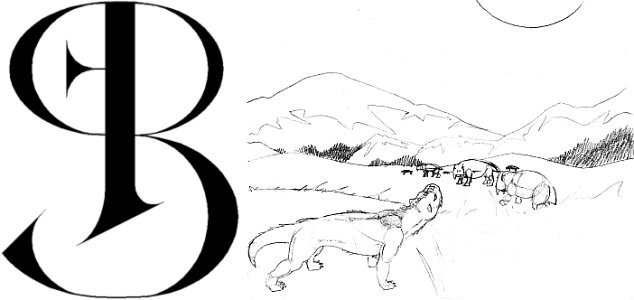
Within the last year we have changed the naming conventions in the Squawk Role-Playing Game. Many creatures including the intelligent reptilian species of the Squawk setting were often named after well-known monsters from mythology. The new names are designed to be less confusing:
- Aeolytes, named after Aeolus, ruler of the winds in greek mythology, used to be called rocs.
- Behemoths, who get their name from the bible (Job 40, suggesting the largest and most powerful animal,) used to be called ogres.
- Boreans, named after Boreas, the cold north wind from greek mythology, used to be called orcs.
- Dromes, from a latin root which suggests running, used to be called basilisks.
- Gafflings, whose name suggests a gaff or hook, used to be called hobgoblins.
- Gremians, from an English name meaning "enrages", used to be called gremlins.
- Gygeans, from the Ring of Gyges described in Plato's Republic (which made it's wearer invisible,) used to be called gargoyles.
- Leviathans, who get their name from the bible (Job 41, suggesting a giant sea creature,) used to be called draconians.
- Lyndwyrms, whose name suggests lindworm (a wingless bipedal dragon in British heraldry,) used to be called minotaurs.
- Myrmidons, named for a tribe commanded by Achilles in greek myth and whose name meant "ant-people", used to be called manticores.
- Orns, from a root word suggesting birds, used to be called gryphons, cockatrices or harpies.
- Phages, from hematophagy (blood-eating), used to be called vampires.
- Skand, from the root of words like "ascend" and "descend" (suggesting leaping and climbing,) used to be called kobolds.
- Strix, from a bird in roman legends that fed on human flesh and blood, used to be called elves.
- Stygians, from the river Styx which separated Earth from Hades in greek mythology (also used in words like stygofauna to suggest underground water,) used to be called trolls.
- Titans get their name indirectly from the titans of greek mythology through the english word titanic, suggesting largeness.
- Zephyrs, named after Zephyrus, the west wind in greek mythology, used to be called unicorns.
 Within the last year we have changed the naming conventions in the Squawk Role-Playing Game. Many creatures including the intelligent reptilian species of the Squawk setting were often named after well-known monsters from mythology. The new names are designed to be less confusing:
Within the last year we have changed the naming conventions in the Squawk Role-Playing Game. Many creatures including the intelligent reptilian species of the Squawk setting were often named after well-known monsters from mythology. The new names are designed to be less confusing:
No comments:
Post a Comment